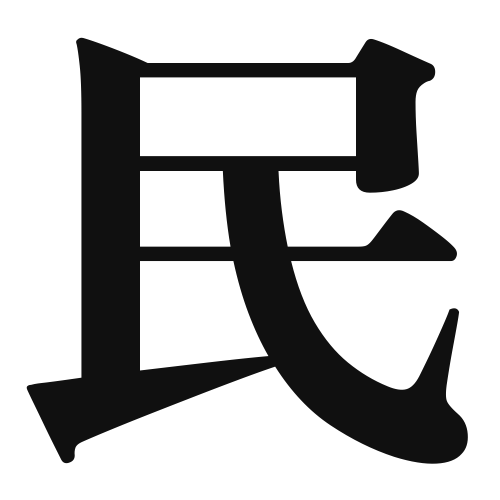1. Overview of Meaning
The kanji “民” (pronounced “min”) means “people” or “citizens.” It represents the common people in society and is often associated with concepts of community and nationality.
2. Formation and Radical
Formation of the Kanji: The kanji “民” is classified as a pictogram, originally depicting a person or people. It is also considered a ideogram as it conveys the idea of a group of individuals.
Radical: The radical for “民” is also “民,” which is used in various other kanji related to people and society.
3. Examples of Usage
Common Words and Phrases: Some frequently used words that include “民” are:
- 国民 (kokumin) – “national citizen”
- 市民 (shimin) – “city resident”
- 民間 (minkan) – “private sector”
Example Sentences in Daily Conversation:
- 彼は国民のために働いています。 (Kare wa kokumin no tame ni hataraiteimasu.) – “He works for the people.”
- 市民としての責任があります。 (Shimin to shite no sekinin ga arimasu.) – “I have responsibilities as a citizen.”
4. Synonyms and Antonyms
Similar Kanji: A similar kanji is “人” (hito), which means “person.” While “人” refers to an individual, “民” emphasizes the collective aspect of people.
Opposite Kanji: An antonym is “主” (shu), meaning “master” or “lord,” which represents authority or leadership, contrasting with the common people represented by “民.”
5. Cultural and Historical Background
Relation to Japanese Culture: The concept of “民” is deeply rooted in Japanese culture, reflecting the importance of community and social harmony. It is often invoked in discussions about democracy and governance.
Proverbs and Idioms: One common saying is “民の声” (min no koe), meaning “the voice of the people,” which emphasizes the significance of public opinion in decision-making.
